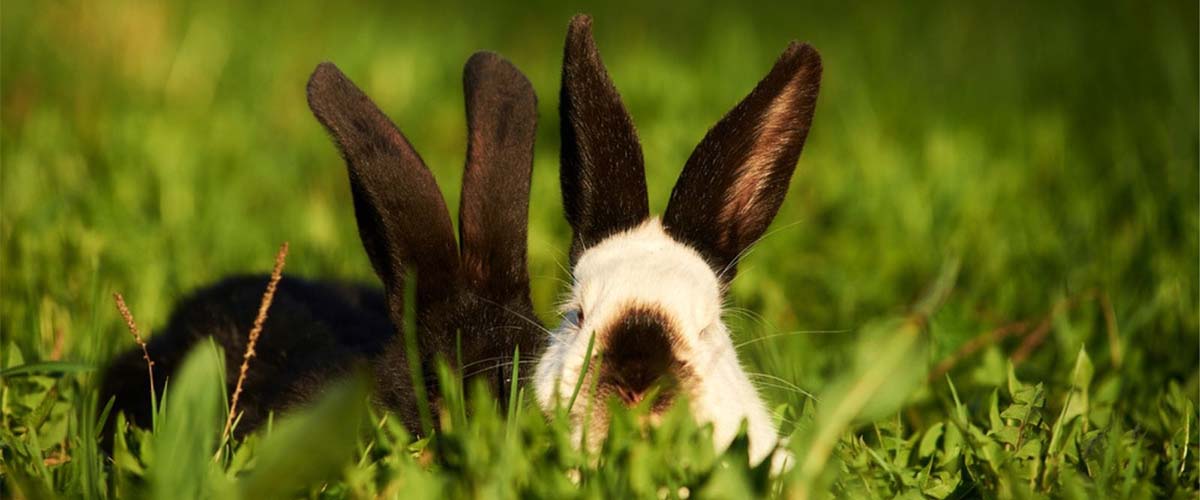Limping in rabbits
Overview
- Rabbits instinctively hide pain to protect themselves (because they are prey animals), so if you notice your rabbit limping, you should contact your vet straight away because it could be something serious.
- There are many different things that can cause a rabbit to limp ranging from a wound, to a broken leg.
- If your rabbit is in pain, it’s possible that they may stop eating, which can lead to serious problems such as gut stasis - it’s especially important to contact your vet quickly if your rabbit stops eating.
Causes
There are many things that can cause a rabbit to limp:
Broken bones
Rabbits have very fragile bones that can break easily.
Arthritis
Most common in older rabbits, but can sometimes affects younger rabbits, especially giant breeds. Arthritis is painful, but there are many different things that can be done to reduce the pain it causes.
Wounds and injuries
Wounds, sprains, strains and bruising all cause pain and are likely to make a rabbit limp.
Spinal injuries
Spinal injuries can cause a limp, but often much more serious problems such as paralysis. Spinal injuries are particularly common if a rabbit is dropped, or jumps from a height.
Bumble foot
Bumble foot (also known as pododermatitis) is an extremely painful infection that causes painful, swollen, crusty foot-pads. It's often started by a wound or hard flooring or wire flooring in their enclosure.
Dislocated joints
If a bone comes out of its socket (such as a hip bone) it will be extremely painful and will often prevent the leg being used completely.
Obesity
If your rabbit is overweight, they may move around less as well as having extra stress put on their joints. This can make them stiff and painful. Read more about how to keep your rabbit in shape.
Lumps
Your rabbit is likely to develop a limp if they have a lump that is big enough to prevent them from moving around properly, or that grows in a painful place.
What else to look out for
If your rabbit is limping it will help your vet if you can tell them about anything else you’ve noticed, such as:
- Any obvious injuries or swellings
- Loss of balance
- A reduced appetite (a serious symptom in a rabbit)
- Being quieter or hiding away more than usual
- Hesitancy to jump
- Any accidents that could have happened
Cost
Treatment for a poorly rabbit can become very expensive, especially if they require surgery or specialist treatment. It’s important to speak openly to your vet about your finances, the cost of treatment, as well as what you think is right for your bunny. There is often several treatment options so if one doesn’t work for you then your vet may be able to offer another.
Consider insuring your rabbit as soon as you get them, before any signs of illness start. This will ensure you have all the support you need to care for them.
Published: January 2021
Did you find this page useful?
Tell us more
Please note, our vets and nurses are unable to respond to questions via this form. If you are concerned about your pet’s health, please contact your vet directly.
Thank you for your feedback
Want to hear more about PDSA and get pet care tips from our vet experts?
Sign up to our e-newsletter
Written by vets and vet nurses. This advice is for UK pets only. Illustrations by Samantha Elmhurst.

